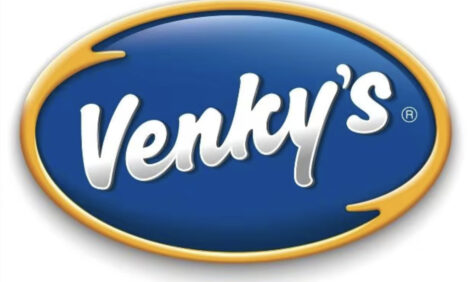



2010: A Good Year for Delmarva's Chicken Industry
DELMARVA, US - The region's chicken companies had a good year in 2010.While many of the challenges of 2010 will carry over into 2011, the just ending year was a positive one in many ways for Delmarva's chicken industry, reports the organisation, Delmarva Poultry Industry. In recent months, chicken companies launched several long range projects that show their confidence in the Delmarva Peninsula as a place where they wish to do business.
Long-range growth and investments
Last year saw a new chicken company, Amick Farms, LLC of South Carolina, establishing operations on Delmarva. This is the first entirely new company to raise and process chickens on Delmarva since 1988. Amick Farms bought a hatchery, feed mill and processing plant from Delaware-based Allen Family Foods, Inc. midway through the year and began working with more than 100 family farms to grow their birds. Amick has been upgrading its new Hurlock, Maryland complex.
In 2010, Allen Family Foods completed phase one of its expansion at its Harbeson, Delaware processing plant. The completed expansion increased weekly bird processing by 20 per cent with another increase coming during the spring of 2011. About 70 jobs were added this year. Two hundred additional persons are expected in 2011/2012 for higher processing line speeds and deboning.
Mountaire Farms of Delmarva, Inc. announced plans in late 2010 to invest $34.5 million into a rendering and resource-recovery plant at its Millsboro, Delaware complex. The new facility will render feathers and other processing plant by-products into poultry meal and pet food. The construction is expected to create 300 jobs during the construction phase and 31 permanent Mountaire jobs once the facility is operating. This will bring Mountaire's employment in Delaware to 3,600 persons. As part of this expansion, Mountaire will be making many environmental upgrades to its Millsboro facilities.
Perdue Farms Inc.'s headquarters at Salisbury, Maryland is undergoing a $12.8 million renovation. The goal is to be more efficient and effective for the company's associates and for the environment. Additionally, Perdue AgriBusiness will build an office in Seaford, Delaware to support that division's continuing growth. This new location will replace a 40-year-old facility near the company headquarters. Approximately 150 current and future associates will be housed at the Seaford location to support the company's growth in grain, feeds, rendering, fertiliser and bioenergy.
Tyson Foods, Inc.'s complex at Temperanceville, Virginia is seeking to expand its processing plant. The company would like an additional 125 family farm-owned chicken houses to supply the plant.
Upcoming challenges
These large-scale expenditures for chicken company-owned facilities have taken place or are taking place despite challenging conditions in the chicken industry nationally.
Record high feed ingredient prices, notably corn and soybeans, make it much more expensive to produce chickens than ever. The biggest cost in producing the birds is the cost of feeding them.
Rising energy costs add to the financial challenges for all sectors of Delmarva's chicken industry. Chicken houses depend upon propane gas and electricity to ensure optimum growing conditions to maintain the welfare of the birds. Rising motor fuel costs are affecting all industry vehicles, such as trucks needed to carry eggs, chicks, birds, finished products and feed.
America's two largest chicken export nations, China and Russia, bought very little chicken last year. Fortunately, sales to other nations have helped fill that void but 2010 American exports are expected to be down compare to the previous year. Work is underway to restore export markets in China and Russia.
The poor condition of the American economy has hurt Delmarva's chicken industry as consumers are eating out less often. While retail and supermarket sales have held their own, food service sales have lagged.
Nationally, the US Department of Agriculture predicts that the 2010 broiler chicken production will exceed last year and the 2011 estimate is for more chicken meat than in 2010, but the rate of growth is slowing. High corn prices for 2011 coupled with relatively weak prices for broiler products are causing broiler companies to scale back plans for production increases for 2011, according to the Livestock, Dairy and Poultry Outlook Report from USDA's Economic Research Service (ERS).
On the grower side, rising energy bills and new environmental regulations virtually have brought chicken house construction on Delmarva to a halt in contrast to other parts of the nation. The uncertainly of government expectations and the much higher costs of pending storm-water management requirements have dramatically slowed chicken house construction and that stagnation could continue in the years ahead. Long term, this inability to replace houses taken out of production due to retirements, deaths and out-of-date facilities is a serious matter. If production does not stay the same or grow, the per bird cost of raising and processing birds on Delmarva goes up, thus making Delmarva a less cost competitive chicken growing area in America and the world.
Importance of Delmarva's chicken industry
However, despite the challenges in 2010 and likely challenges in 2011, Delmarva's chicken industry remains a bright spot for Delmarva's economy. There have been no major employee lay-offs or plant closings. Delmarva produces close to 600 million chickens per year, thanks to nearly 15,000 chicken company employees and 1,700 farm families that raise the birds. Together, in 2009, these people earned more than $613 million, a huge amount of money circulating through the local economy. It is estimated that close to 100,000 people have jobs because of Delmarva's chicken industry and the chicken industry money that is spent and re-spent many times.
The chicken industry keeps working farms as working farms growing the corn and soybeans fed to the birds. These working farms are beneficial to our environment and provide, without charge, beautiful vistas and open spaces. Working farms also help governments keep costs down because farmland does not desire or demand increased government services like schools, libraries, roads, safety services, jails, and public water and sewer systems.








